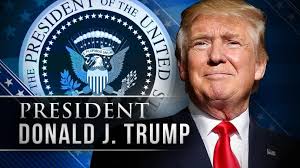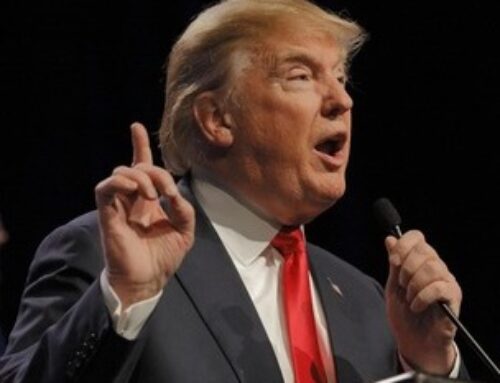
Let me begin by discussing the President’s weaknesses, by which I do not mean the contrived litany of charges regularly advanced against him—bigotry, sexism, homophobia, etc. I mean, instead, his actual weaknesses, most of which may be classified broadly as language deficiencies. (Such deficiencies are obvious to me because I spent three decades teaching college students to overcome them and writing textbooks to help guide their efforts.)
The following deficiencies are the most prominent in Trump’s speaking and tweeting:
Overreliance on hyperbole, repetition, and overgeneralization. Examples of hyperbole are his frequent use of words such as amazing, fantastic, incredible, unbelievable, tremendous, enormous, beautiful, disgraceful, catastrophic, and total (as in total loser). An example of repetition is his habit of using the same phrase, word for word, two or three times over the course of a few sentences. His habit of overgeneralization, which causes a great deal of misunderstanding and resentment, is best illustrated by carelessly implying all members of a group—for example, all Mexicans or all immigrants—when he means only certain members of the group.
The hyperbole gives the misleading impression that he lacks a sense of proportion, the repetition that his vocabulary is inadequate, the overgeneralization that he has difficulty making distinctions.
Failure to keep his discussions focused. Wanderitis, if you will. Having stray thoughts intrude as we speak (or write) is natural enough, but disciplined speakers refuse to be sidetracked. Trump has trouble doing that. Analyst Dagen McDowell compared him to a football quarterback who becomes so absorbed in arguing with fans in the stands that he keeps dropping the football. Patrick Buchanan likened him to a heavyweight boxer approaching the ring, hearing an insult from someone in the crowd, and rushing over to fight that person instead of his opponent.
Expressing his thoughts in the first phrasing that comes to his mind. He seems to believe that spontaneity guarantees effectiveness, but it does not. Spontaneity is prone to factual incorrectness, imprecision, confusion, and/or imprudence, and thus can be not only ineffective but also counterproductive. This is especially the case when the first phrasing that comes to mind is about people rather than ideas and is derogatory and insulting. An example of this deficiency is his habit of assigning nasty names to others, which was evident during the presidential campaign and afterward. That habit suggests, at the very least, disrespect for others.
The recent presidential tweet concerning the four Freshman congresswomen known as “the Squad” is another example of placing excessive trust in spontaneity. That tweet contained these statements:
So interesting to see ‘Progressive’ Democrat Congresswomen, who originally came from countries whose governments are a complete and total catastrophe, the worst, most corrupt and inept anywhere in the world . . . Why don’t they go back and help fix the totally broken and crime infested places from which they came. Then come back and show us how it is done . . . . [Emphasis added]
Had he thought for a moment about that phrasing (or asked someone about it) he would have realized that it was much too close to the “why don’t they go back where they came from” remarks that immigrants from Ireland, Italy, Poland, Spain, Germany, China, Japan, and virtually every African country were subjected to, resented, and taught their children to resent. Moreover, he would have checked (or had someone else check) the facts about “the Squad” and learned that only one of the four (Omar) is foreign born and only one other (Tlaib) has immigrant parents.
By making the statement in the form he did, the President not only caused many Americans to cringe, but obscured the very valuable insight he had in mind. Consider how different the effect would have been if he had expressed that insight this way:
Congresswoman Omar would do well to remember that her family fled Somalia and came to the United States because they realized this country offered unparalleled freedom and opportunity, and to realize that her own career gives testimony to the wisdom of their choice.
If the President had expressed his point in this way, it would have both delighted his supporters and made it difficult if not impossible for his detractors—including Omar herself—to disagree.
These language deficiencies of the President largely explain why many of his critics call him intellectually deficient, but they are mistaken. In fact, he is well above average in intelligence. I do not mean the passive ability to memorize vast quantities of information and achieve dazzling scores on IQ tests, but the active ability to solve problems and resolve issues—in other words, to demonstrate common sense, insight, and even wisdom.
My praise of Trump’s intelligence may seem absurd to those filled with media propaganda, but the evidence supporting my assertion is abundant. Here is a short version of the President’s accomplishments in less than three years (the compilation is by Steve Hilton, The Next Revolution, 7/21/19).
Unemployment is at a fifty-year low overall, and at an all-time low for Hispanics and African Americans
Job growth in manufacturing has reached the highest level since 1997
Hourly wage earnings in every industry are higher now than under Obama
Income growth in “swing states” of Florida, Iowa, Ohio, Pennsylvania, Wisconsin and Nevada is significantly higher now than under Obama
Lowest paid workers had the greatest improvement of any income group
The Dow stock index has risen in value almost 50%
The average 401K retirement value has reached an all-time high
Tax cuts and reductions in regulations on business have led to significant increases in hiring and capital investment
Trump’s tariffs on foreign imports have resulted in many businesses returning to the United States, as well as in higher wage rates for American workers
The ISIS caliphate has been destroyed
NATO nations have begun paying their share of the organization’s expenses
The U.S. military defense systems have been improved
Philosophical balance has been achieved on the Supreme Court
The U.S. now exports more energy than it imports
Prescription drug prices have fallen for the first time in 47 years
Consider, too, that all of these achievements have been gained despite the constant opposition of Democrats, establishment Republicans, and almost every major news organization in the country, opposition that continues even after the completed Mueller report proved favorable to the President. Just imagine how much more he could have done for the country with the cooperation of elected officials and the media!
So much for the President’s weaknesses and strengths. Now let’s consider, in light of them, what judgment can most reasonably be made about President Trump and his presidency?
As I make that judgment, I have in mind the distinction between STYLE and SUBSTANCE. Style refers to how effectively a person expresses his thoughts, as well as the impressions and implications they suggest to his audience. Substance refers to the quality of the person’s ideas, as measured by how beneficial they prove to be when acted upon. For example, I believe it would be fair to say of Trump’s predecessors, Bill Clinton was very strong on style and quite strong on substance, George W. Bush was weak on style but somewhat strong on substance, and Barack Obama was very strong on style but very weak on substance.
And what of Trump? In my view, he is weak on style (sometimes very much so) yet exceptionally strong on substance.
Which of the four presidents should be considered the best and which the worst? This judgment is more complex because we first must determine which of the two factors—style or substance—is more important. If style is more important, we might well conclude that Clinton and Obama are tied for best and Trump is, hands down, worst. However, if substance is more important, I submit that Trump is clearly the best.
To summarize my assessment, although President’s Trump’s words are often inelegant, crude, and sometimes downright offensive, his deeds are remarkably numerous and laudable. Moreover, he keeps his promises! In an age in which politicians typically promise everything and deliver only empty excuses, that quality alone sets Trump apart.
Copyright © 2019 by Vincent Ryan Ruggiero. All rights reserved



